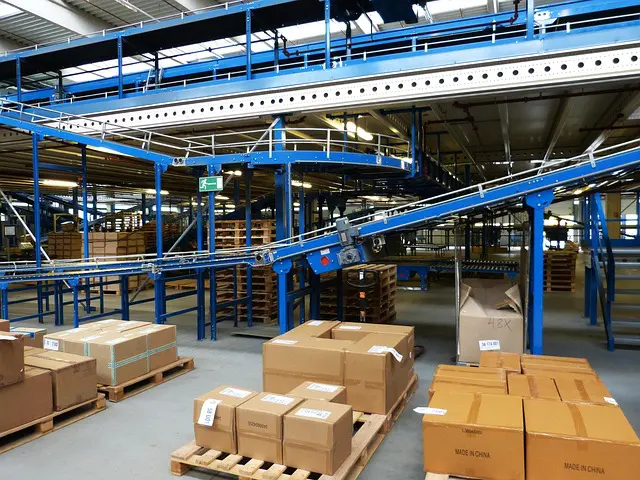Bu Haftanın Lojistik Öne Çıkanları
21 Temmuz - 24 Temmuz 2025 haftası, lojistik sektöründeki çeşitli coğrafyalara ve endüstrilere dokunan kritik gelişmeleri öne çıkardı. Avrupa Birliği genelinde güneş enerjisi kurulumlarında gözle görülür bir düşüş, BYD gibi şirketlerin Pakistan'daki önemli üretim genişlemeleri ve ABD ile Japonya'yı içeren yeni ticaret anlaşmaları önemli konulardı. Yapay zekanın tedarik zincirlerine entegrasyonu ve Yamaha gibi şirketlerin lojistik operasyonlarındaki değişimler de lojistik ortamının nasıl gelişebileceğine dair içgörüler sunarak önemli odak noktaları oldu.
AB Güneş Enerjisi Kurulumlarında Düşüş
Avrupa Birliği, on yılı aşkın bir süredir ilk kez güneş enerjisi kurulumlarında kayda değer bir düşüş yaşıyor. Bu azalmanın 2025'te %1,41 olması öngörülüyor ve bu, önceki büyüme eğilimlerinden önemli bir dönüş. Düşüşün temel nedeni, başta Almanya, Fransa ve Hollanda olmak üzere büyük pazarlardaki konut tipi güneş enerjisi sistemleri için devlet teşviklerinin azalmasıdır. Genel olarak, güneş enerjisinin AB'nin elektrik üretiminin önemli bir bölümünü (1) oluşturmasına rağmen, projeksiyonlar konut tipi çatı kurulumlarının payında bir düşüş olduğunu gösteriyor - 2020 ile 2023 arasında yaklaşık 1'den 2025'te beklenen sadece 1'e. Bu önemli değişim, güneş enerjisi tedarik zinciri genelinde zorluklar yaratıyor ve AB'nin 2030 güneş enerjisi kapasitesi hedefini 27 gigawatt ile kaçırması beklendiğinden tedarik zinciri istikrarı hakkında soruları gündeme getiriyor. Lojistik üzerindeki etkileri derin ve politika değişikliklerinin genel tedarik zinciri dinamikleri üzerinde yaratabileceği dalga etkisini örnekliyor.
BYD'nin Pakistan'a Yayılması
Çinli elektrikli araç (EV) üreticisi BYD, 2026 ortasına kadar Pakistan'da bir üretim tesisi kurmaya hazırlanıyor. Bu girişim, bölgedeki EV'lere ve şarj edilebilir hibritlere olan artan talebi karşılamayı amaçlıyor. Mega Motor Company ile işbirliği yapan BYD'nin Karaçi'deki yeni montaj fabrikasının, başlangıçta ithal edilen bileşenlere dayanırken kademeli olarak yerel üretim unsurlarını dahil ederek yıllık 25.000 adet üretim kapasitesine sahip olması bekleniyor. ila 35%'lik bir pazar payını hedefleyen BYD, bölgesel ihracat fırsatlarını da değerlendiriyor. BYD'nin Shark 6 şarj edilebilir hibrit pikabının yakında piyasaya sürülmesi, şarj altyapısının kısıtlı olduğu bir pazarda hibritlere yönelik artan tercihle örtüşüyor. Hükümet teşviklerinin elektrikli araçların benimsenmesine yardımcı olmasıyla, bu girişim Pakistan'daki otomotiv tedarik zincirini yeniden şekillendirecek gibi görünüyor.
ABD-Japonya Ticaret Anlaşması
Dönüm noktası niteliğindeki bir ticaret anlaşmasında, ABD ve Japonya tarifeleri önemli ölçüde ayarlayarak Japon otomobil ithalatındaki vergileri ,5'ten 'e düşürdü. Bu işlem, Japonya'nın ABD'ye yönelik projelere 1,55 trilyon dolar yatırım yapma taahhüdüyle daha da sağlamlaştırılıyor ve bu projeler arasında özellikle 100 Boeing uçağının tedariki ve pirinç gibi tarımsal ithalatın artırılması yer alıyor. Bu ticaret ortamı, yarı iletkenler ve ilaçlar da dahil olmak üzere kritik sektörlerdeki tedarik zincirlerini güçlendirmeyi amaçlıyor. Japon otomobil endüstrisi anlaşmadan büyük memnuniyet duyarken, ABD'li otomobil üreticileri, yerel olarak üretilen alternatiflere kıyasla Japon ürünlerine yönelik algılanan ayrıcalık konusunda endişelerini dile getirdi. Çelik, alüminyum ve teknolojik ithalat üzerindeki tarifelerle ilgili devam eden müzakereler, bu trans-Pasifik ticaret ilişkisinin geleceğini şekillendirecek.
ABD Yapay Zeka Eylem Planı Duyurusu
ABD yönetiminin 23 Temmuz 2025 tarihinde çeşitli başkanlık emirleriyle açıkladığı Yapay Zeka Eylem Planı, yurt içi tedarik zincirlerini önemli ölçüde değiştirecek. Bu plan, büyük veri merkezlerinin genişletilmesini vurgulayarak, kamu hizmeti planlamasını ve enerji altyapısını etkilemektedir. Ek olarak, lojistik ve üretim sektörlerindeki düzenleyici geri çekilmeler, yapay zeka araçlarının kullanımını artırma sözü verirken, eyalet düzeyinde artan düzenleyici çeşitliliğe de yol açabilir. Yapay zeka teknolojileri üzerindeki ihracat kontrollerinin gevşetilmesi olasılığı, küresel pazar erişimini açabilir, ancak uyumluluk riskleri de oluşturabilir. Tedarik zincirindeki paydaşlar, yeni altyapı taleplerine ve gelişen operasyonel protokollere uyum sağlarken bu değişikliklerde etkili bir şekilde yol almalıdır.
Yamaha Motor'un Üçüncü Taraf Lojistiğe Geçişi
Yamaha Motor Manufacturing Corporation of America, iç dağıtım fonksiyonlarını 5 Ekim'den itibaren geçerli olmak üzere DHL Supply Chain'e kaydırma kararı aldığını duyurdu. Bu stratejik değişiklik, Yamaha'nın temel yetkinliklerine odaklanmasına olanak tanırken, lojistik operasyonlarının verimliliğini artırmayı amaçlamaktadır. Yaklaşık 175 çalışan DHL'e geçiş yapacak, bu da daha çevik ve ölçeklenebilir bir tedarik zinciri çerçevesi oluşturmaya yönelik işbirlikçi bir yaklaşımı temsil ediyor. Yamaha, bu ortaklık aracılığıyla DHL'in kapsamlı lojistik uzmanlığından yararlanırken, operasyonel esnekliğini ve güvenilirliğini artırmayı bekliyor.
Önemli Çıkarımlar
Bu haftanın lojistik güncellemeleri, çeşitli endüstrileri ve bölgeleri etkileyen önemli değişiklikleri yansıtmaktadır. AB içindeki güneş enerjisi kurulumlarındaki düşüş, politikaların tedarik zincirlerini etkilemedeki kritik rolünü vurgulamaktadır. Aynı zamanda, BYD'nin Pakistan'a genişlemesi, elektrikli araçlara yönelik artan küresel talebin altını çizerken, ABD-Japonya ticaret anlaşması, uluslararası ticaret dinamiklerinin potansiyel faydalarını ve zorluklarını göstermektedir. Ayrıca, Yapay Zeka Eylem Planı'nın ABD genelinde tedarik zinciri operasyonlarında önemli değişikliklere yol açması muhtemeldir.
En kapsamlı incelemeler ve içgörülerle bile, ilk elden deneyimin yerini hiçbir şey tutamaz. Açık GetTransport.com, iş veya kişisel kullanım için ihtiyaçlarınıza göre uyarlanmış uygun fiyatlı, küresel kargo taşımacılığı çözümleri bulabilirsiniz. Bu platform, verimli ve uygun maliyetli seçenekler sunma taahhüdünü yansıtarak, bütçenizi aşmadan bilinçli lojistik kararları vermenizi sağlar. Bu nedenle, bir sonraki kargo taşımanızı planlarken, kolaylık ve kapsamlı hizmet olanaklarını kaçırmayın GetTransport.com. Yolculuğunuzu ayırtın.

 Insights on Recent Logistics Developments: July 21st to July 24th, 2025">
Insights on Recent Logistics Developments: July 21st to July 24th, 2025">